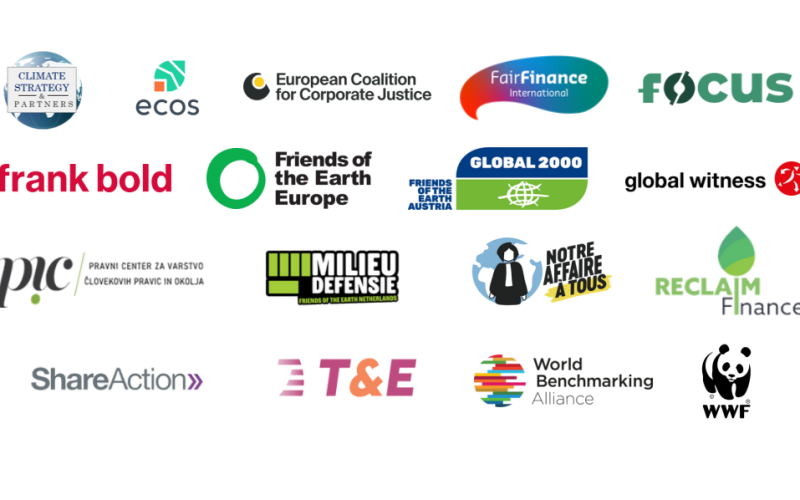Civil society organisations have raised concerns over the significant risk of greenwashing posed by the latest draft guidance from the European Financial Reporting Advisory Group (EFRAG).
The EFRAG has unveiled its first draft of the Climate Transition Plan Guidance, which outlines requirements for companies to report on greenhouse gas (GHG) emission reduction targets in line with the Paris Agreement’s 1.5°C goal. The guidance advises companies to assess the “level of compatibility” of their targets by comparing them to 1.5°C benchmarks and providing contextual details. However, the lack of specific parameters for “compatibility” raises concerns about potential greenwashing and misrepresentation in corporate disclosures.
Critics argue the current draft permits companies to align with scenarios up to 3°C while claiming compliance with the Corporate Sustainability Reporting Directive (CSRD), undermining transparency and comparability. This loophole poses risks not only for climate accountability but also for the objectives of other interlinked EU legislations, including the Corporate Sustainability Due Diligence Directive (CSDDD).
Seventeen civil society organisations, including WWF, Transport & Environment, and Global Witness, have signed a joint appeal urging EFRAG to strengthen this draft. They assert that the draft could allow companies to publish CSRD-compliant plans that lack alignment with the 1.5°C target. This could jeopardise the EU’s broader Green Deal objectives, which aim to ensure climate transition plans are compatible with global warming limits critical to the Paris Agreement.
Under the European Sustainability Reporting Standards (ESRS), companies must disclose whether their GHG reduction targets meet the 1.5°C threshold. However, the draft’s vague definition of compatibility could obscure distinctions between genuinely ambitious targets and less rigorous commitments, potentially misleading investors and financial institutions seeking to support sustainable transitions.
Moreover, the CSDDD explicitly exempts companies with a CSRD-compliant transition plan from additional CSDDD requirements. A loose definition of compatibility risks enabling companies to sidestep robust climate obligations, contradicting the EU’s sustainability objectives and increasing legal greenwashing risks.
Civil society organisations recommend explicitly requiring companies to disclose plans with 1.5°C-compatible targets under ESRS E1-1 and clarifying whether and when such plans will be implemented if not currently in place.
“We call on EFRAG to act decisively to close loopholes that undermine the rule of law, environmental standards, and the EU Green Deal’s success,” the statement emphasises.
“The current version of the guidance sets a dangerous precedent for future practice and policy development in the realm of Climate Transition Plans. Amendments to the text are required in order to safeguard the overarching policy objectives of Climate Transition Plans in the context of the green transition and ensure consistency among key files that make up the sustainable finance framework” said Mariana Ferreira, Sustainable Finance Policy Officer at WWF EU.
EFRAG’s Technical Expert Group is reviewing the draft, with a revised version expected for public consultation in January 2025. Civil society groups are advocating for stronger integration of scientific evidence and policy objectives in the guidance to ensure it aligns with the EU’s climate commitments.














